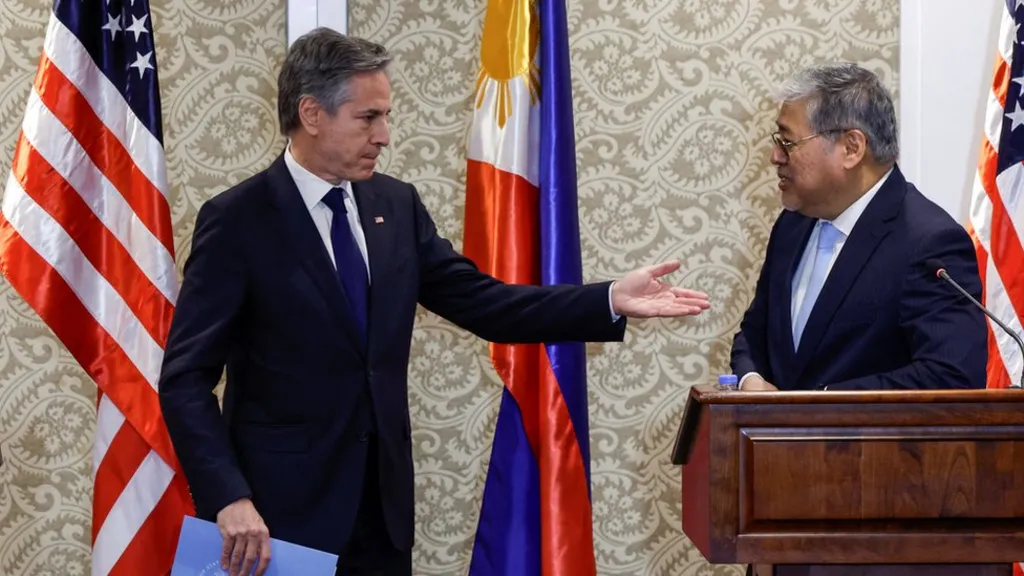As a result of the publication of my article on Saturday in “Politis”, entitled “Why do we celebrate resplendently the 1st of April?”, several of my friends contacted me to tell me that the armed struggle of EOKA became necessary after the “never” of Hopkinson.
Indeed, Henry Hopkinson, UK Secretary of State for Colonies between 1952-1955, speaking about Cyprus in the House of Commons in 1954, said: “There are certain territories in the Commonwealth which, due to the more specific circumstances in which they are located, can never expect to gain full independence.” And this statement, as many “nationalists” tell us, left no room other than armed struggle. Of course, it is a simplistic and completely unhistorical narrative, which, however, almost convinces us, because we are constantly sucking it from television and not only.
First of all, the decision on armed struggle was made long before Hopkinson’s statement. The Ethnarchy-Far-Right alliance was determined to go ahead with an armed struggle because it had the naivety to believe that this would achieve union. We are not doing them any injustice, because the degrees of the political IQ of the leaders in a papadocracy are numerically comparable to the temperature degrees of Siberia. Hierarchs firmly believe that they are gifted godly with the virtue of “right politics.” Now, if their mission from heaven produces infinite earthly material gains at the expense of the faithful, it is because “nothing is free”, as the economist Chrysostomos II points out.
In essence, however, as Grivas writes, the discussions about armed action began in August 1950, that is, 4 years before Hopkinson’s speech, with the participation of well-known right-wing extremists and anti-communists. The leader of this far-right group was Makarios. The painful truth is that Makarios, at least in the 1940s, was a right-wing extremist, a supporter of white terrorism. When he visited Makronissos in 1948, he wrote in the visitors’ book: “A psychic bath was for us our visit to Makronissos. We leave with an unwavering faith that our Greece never dies” (See G. Pikrou: “The Chronicle of Makronissos”, p. 204).
But there is another reason that pulverizes the argument that Hopkinson’s “never” justified armed action. The political and geopolitical happenings are constantly changing, creating new facts. The great philosopher Heraclitus used to say “everything flows, never in this way remains” and this is most true when under our microscope is the political history of a country. If our leaders in 1954 were to seek the advice not of a professor, not a first-year political science student, but of a 16-year-old student studying Politics for the GCE Ordinary level (ordinary/lower level) exams, he would reply like this: “Be careful. If you seek union, you will eat your face, because it is a move that is not favoured either by America, nor by Great Britain, nor by Turkey, nor by the Soviet Union, nor by the UN. That is why I recommend that your goal should be independence, as it is of the other 70 colonies of Great Britain, by political means. Don’t you see that all empires are collapsing? I would bet that in the next decade there will be no more colonies.” Indeed, the bet would be won by this student, because since 1964 no British colony has remained such against its will.
Perhaps the most striking example that confirms heraclitus’ dictum is the acquisition of the right of women to vote in Europe. In 1893, British Prime Minister Gladstone, speaking to the House of commons in 1893, said: “Women must realise that they will never be given the right to vote. The involvement of women in politics will corrupt them and will have unpleasant consequences, not only on the institution of the family, but also on society in general” (cf. “Sex and suffrage in Britain 1860–1914”, p. 54, Susan Kent). And yet! After a few years, in 1918, the House had second thoughts due to the change in culture and the political climate in general and gave women the right to vote.
Another glaring example concerning Cyprus is the “oath of Faneromeni”, as it is called, by Makarios, for the union in 1954. Makarios swore “that we will remain faithful to death to our national request…” It is certain that when Makarios swore, then he believed that union could be achieved, that the day would never come when his opponents would accuse him of being a “sworn.” Over time, of course, the situation changed dramatically. After the events of Kofinou in 1967 and the withdrawal of the Greek troops, Makarios was, to his credit, the first Cypriot who dared to say clearly that the union was not possible. Unfortunately, it did not follow the line of independence consistently, but that is another matter. The vows of politicians are reminiscent of teenagers in love of old times, who promised eternal love and eternal devotion, but spoiled them the next day. Perhaps he didn’t pass by her house to greet her, or she sweetened, in Romeo’s judgment, a stranger.
*Opinions expressed in this article are the author’s own and do not necessarily reflect the editorial policy of CypriumNews.



